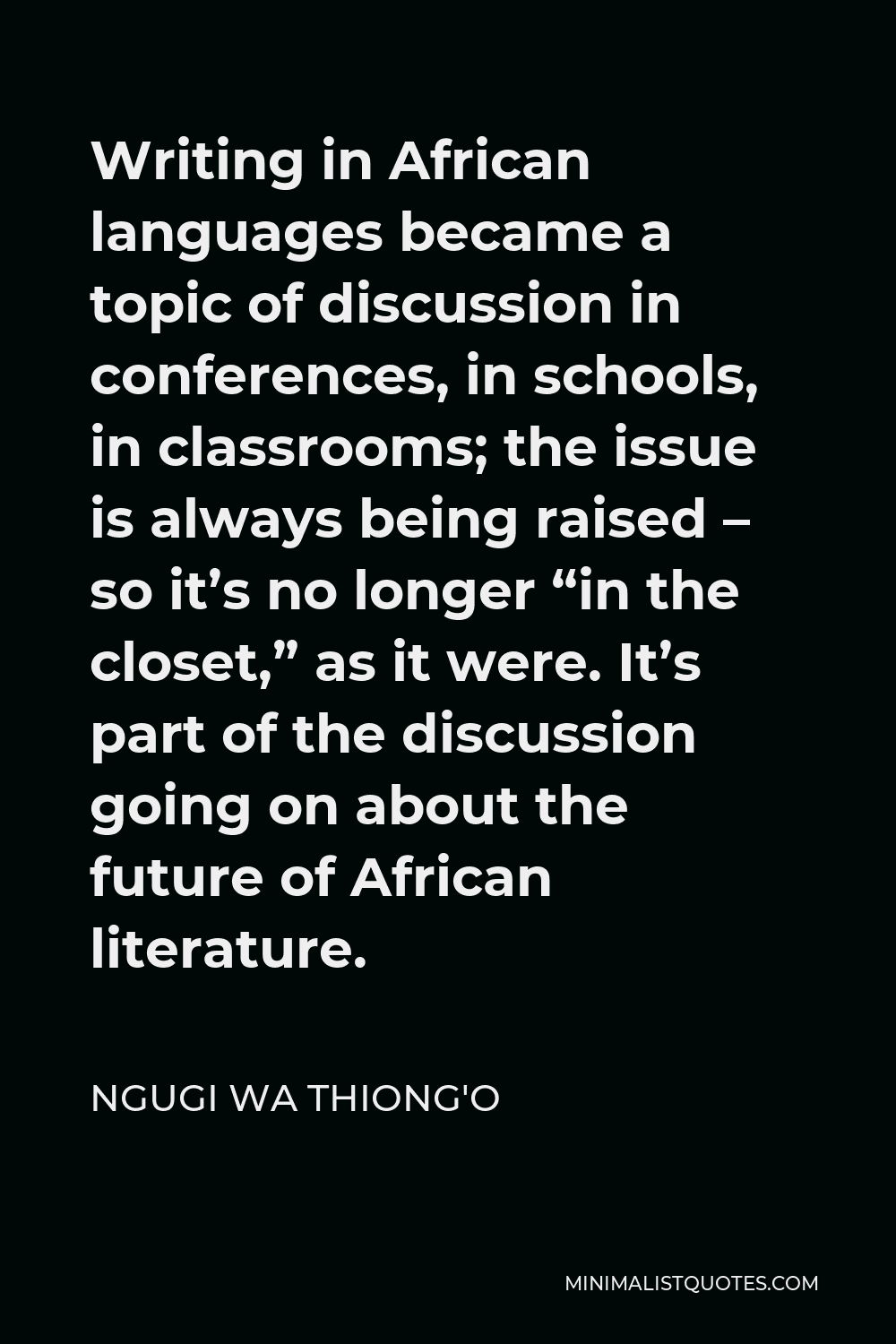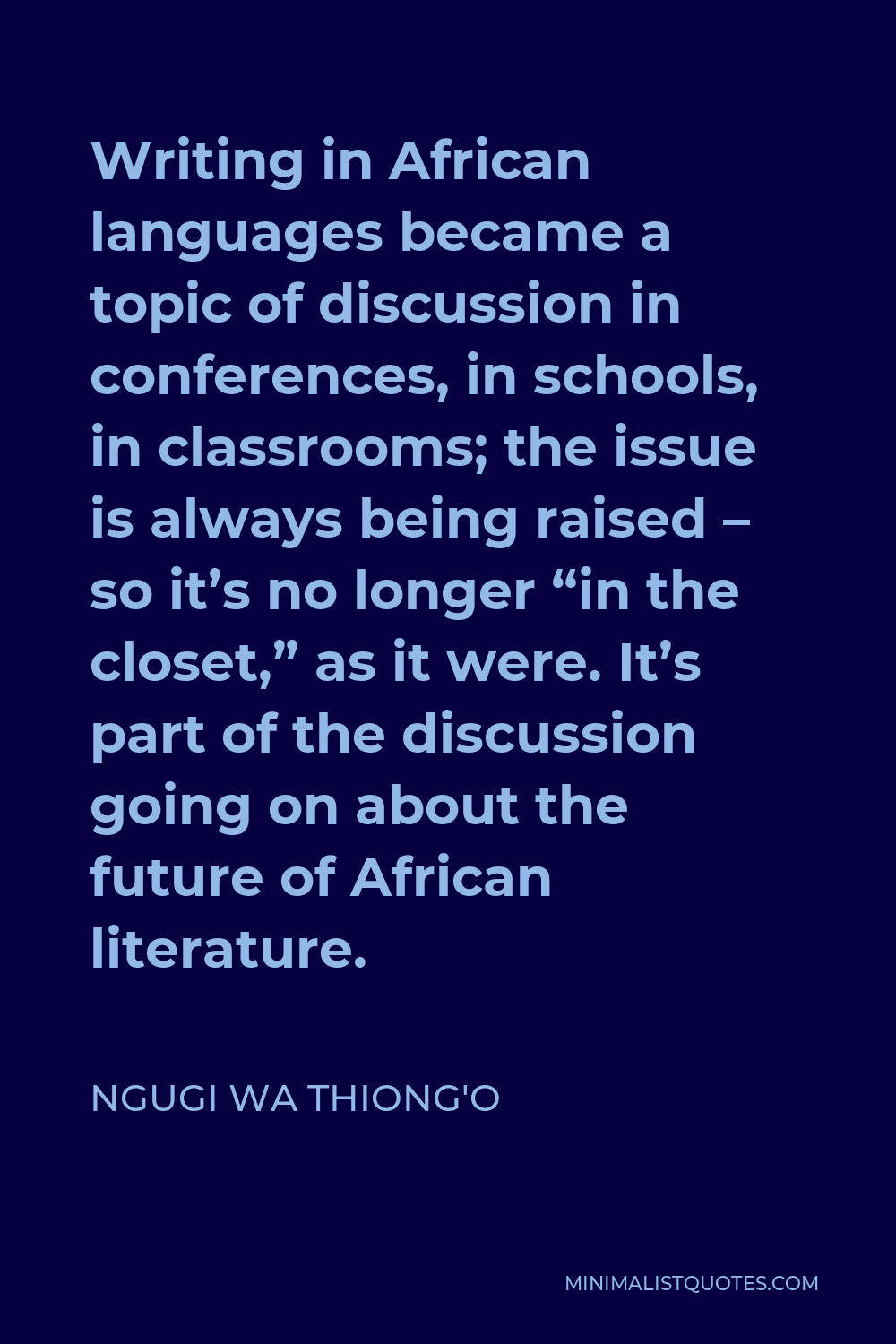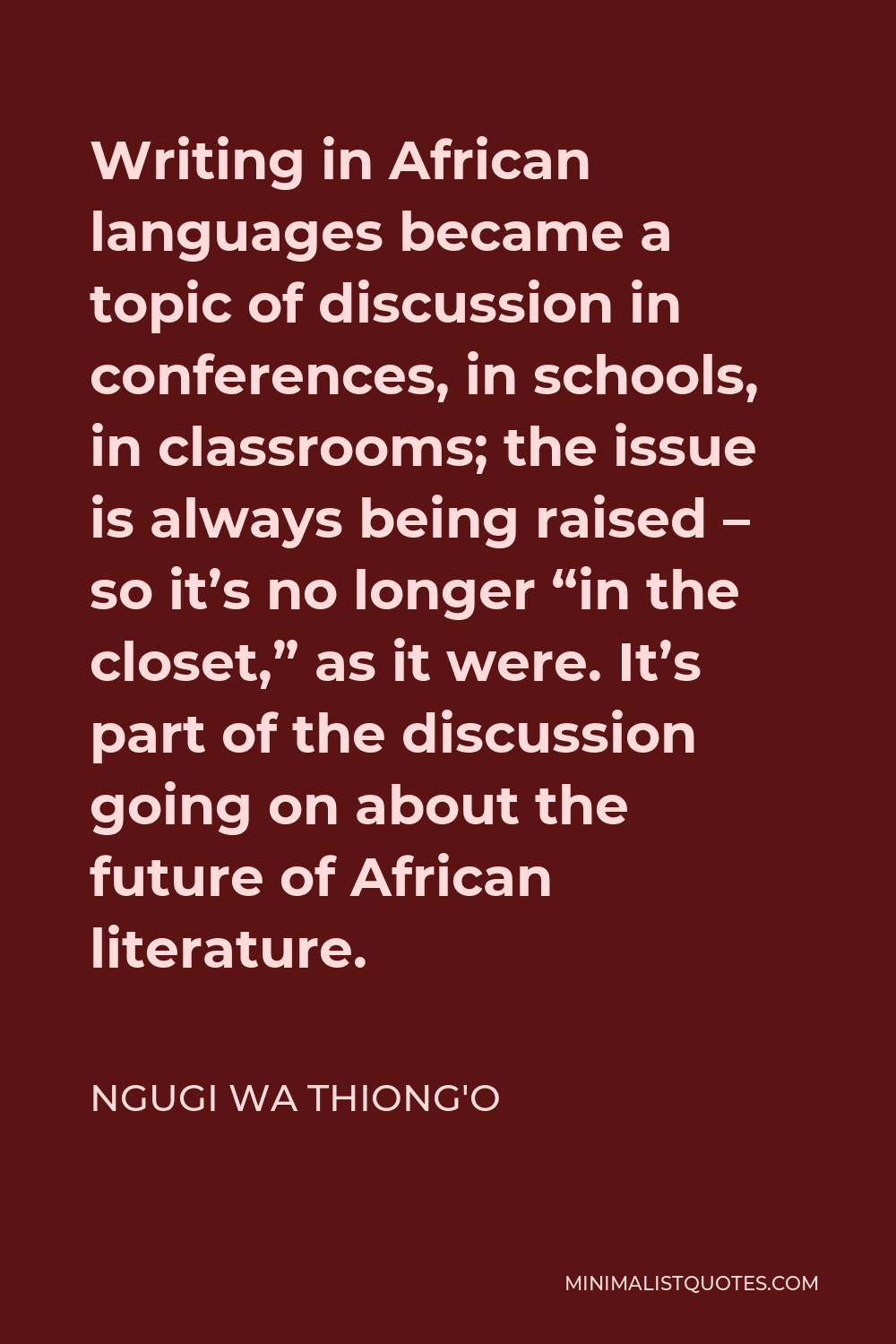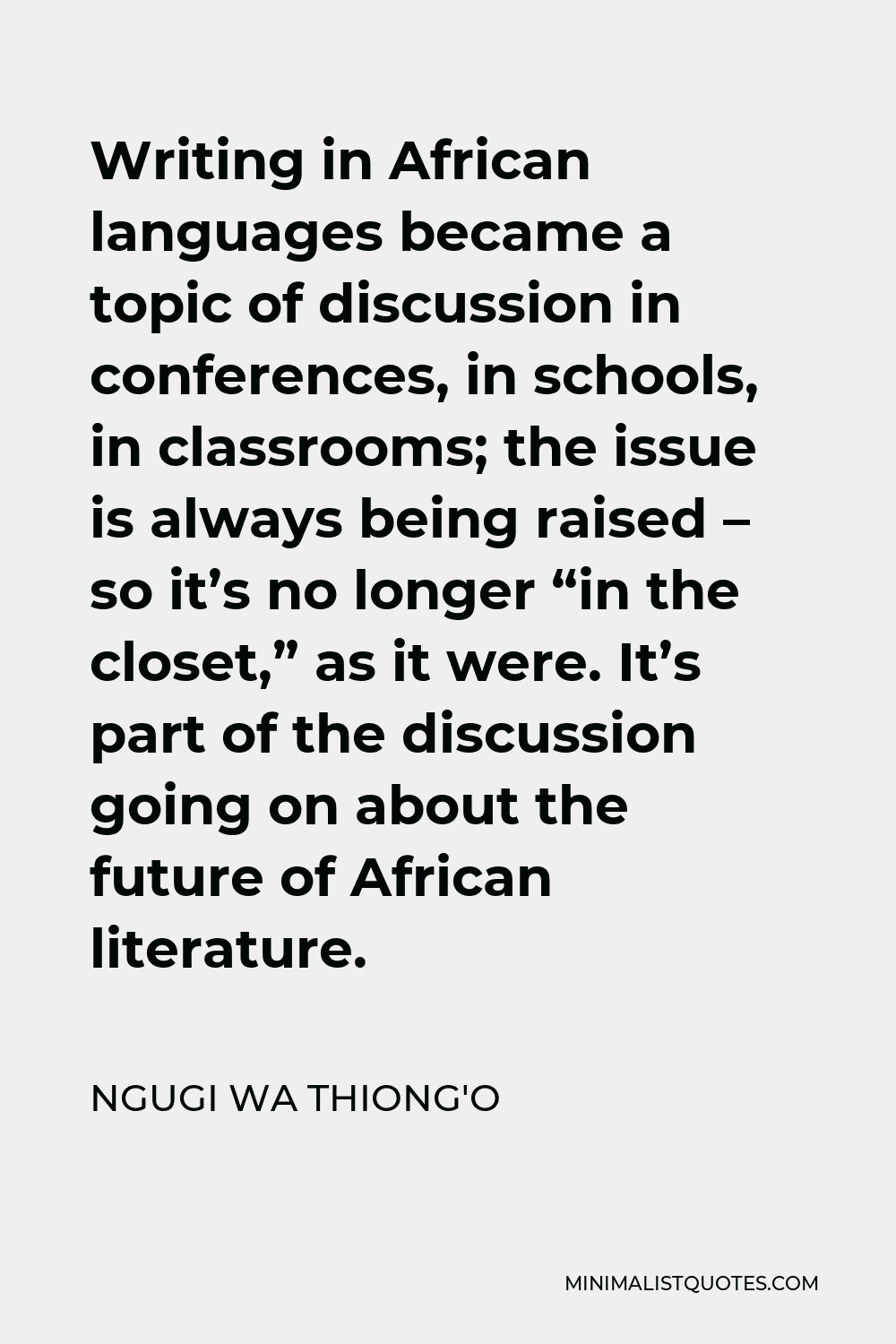A person who acquires English has access to all the things that that language makes possible.
NGUGI WA THIONG'OWriting in African languages became a topic of discussion in conferences, in schools, in classrooms; the issue is always being raised – so it’s no longer “in the closet,” as it were. It’s part of the discussion going on about the future of African literature.
More Ngugi wa Thiong'o Quotes
-





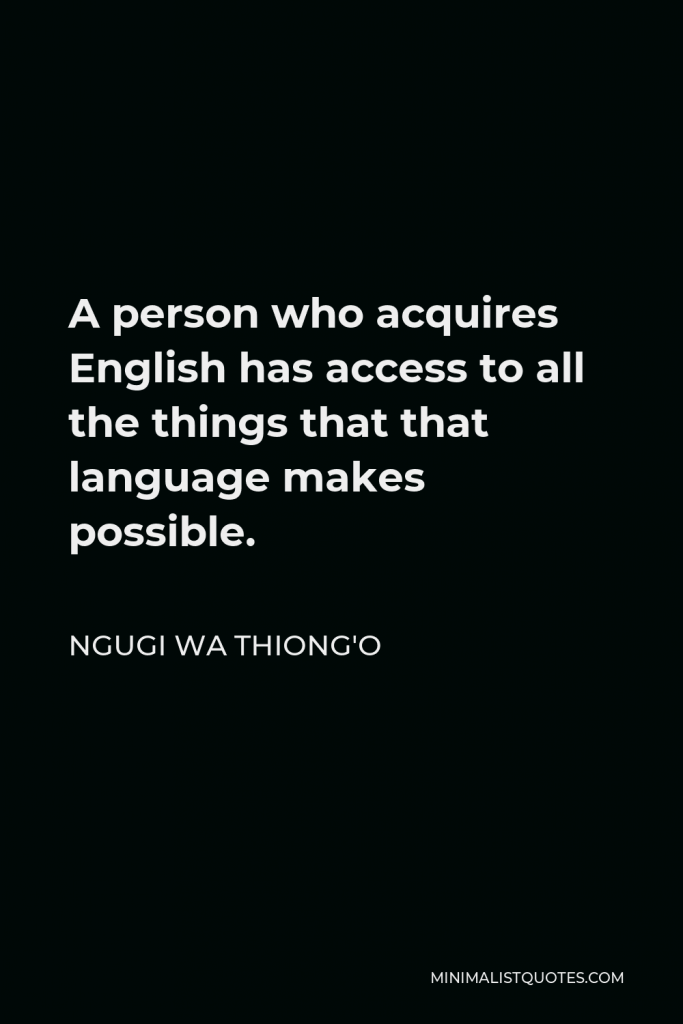

-





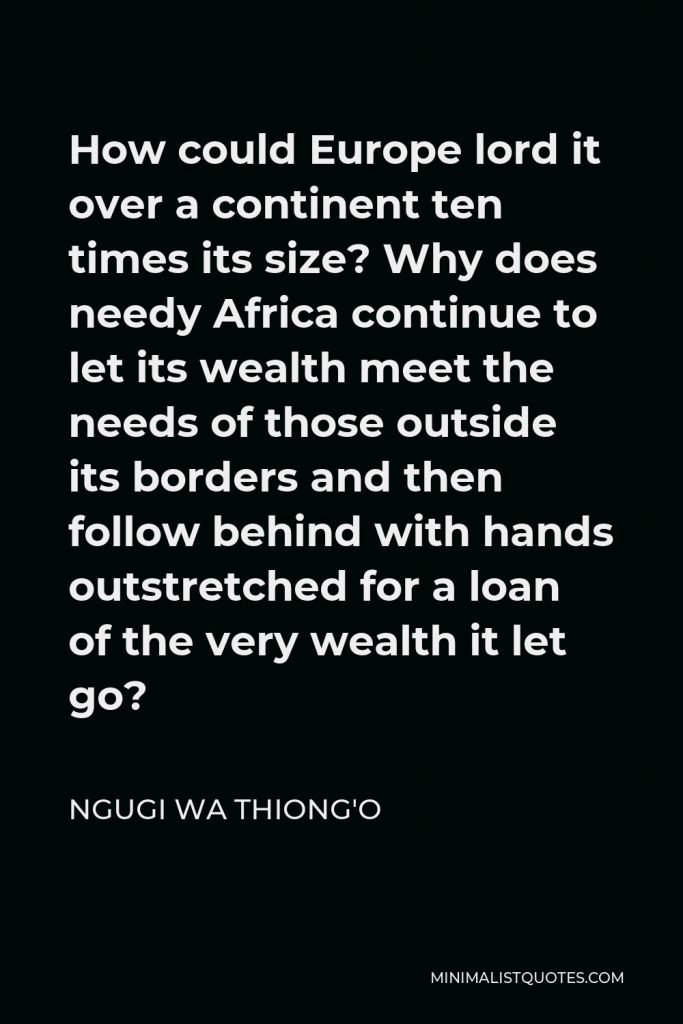

How could Europe lord it over a continent ten times its size? Why does needy Africa continue to let its wealth meet the needs of those outside its borders and then follow behind with hands outstretched for a loan of the very wealth it let go?
NGUGI WA THIONG'O -





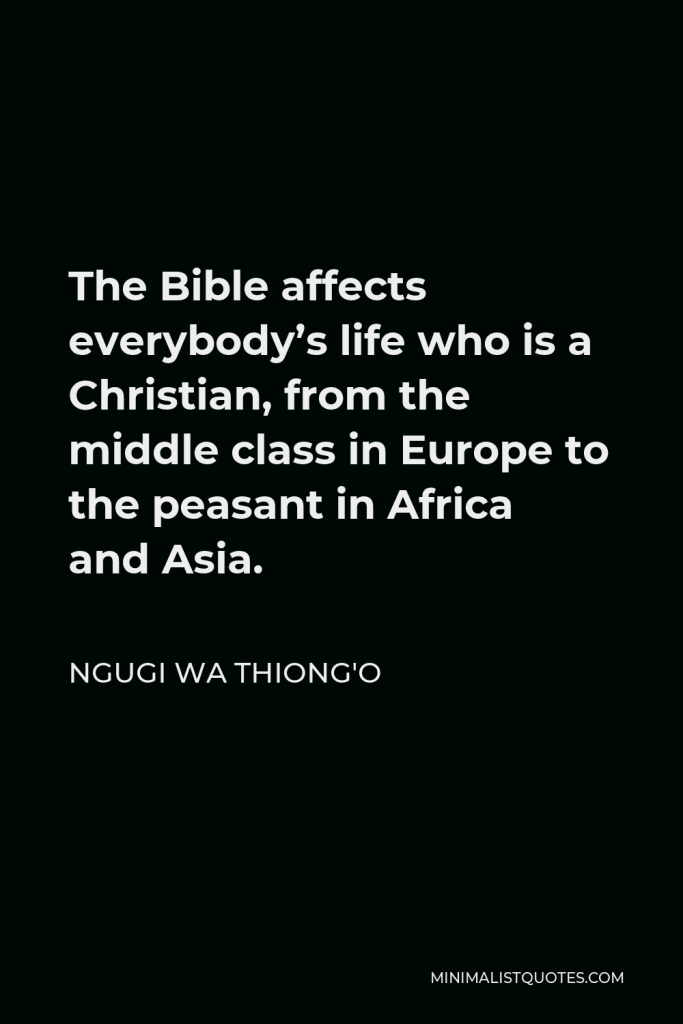

The Bible affects everybody’s life who is a Christian, from the middle class in Europe to the peasant in Africa and Asia.
NGUGI WA THIONG'O -





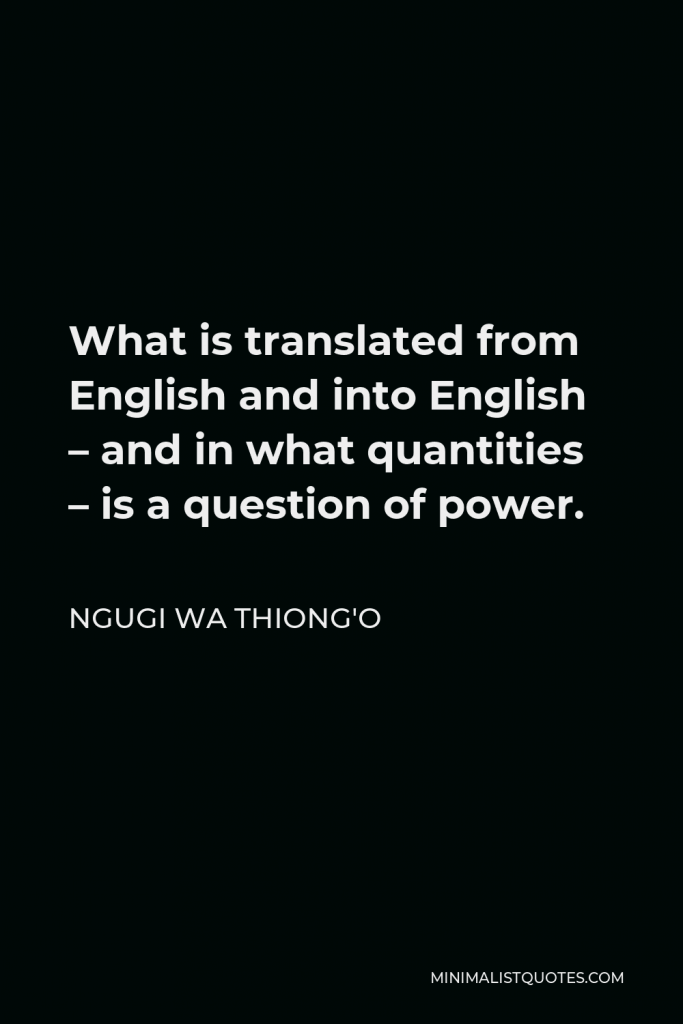

What is translated from English and into English – and in what quantities – is a question of power.
NGUGI WA THIONG'O -







The same questions are there in Native American languages, they’re there in native Canadian languages, they’re there is some marginalized European languages, like say, Irish.
NGUGI WA THIONG'O -





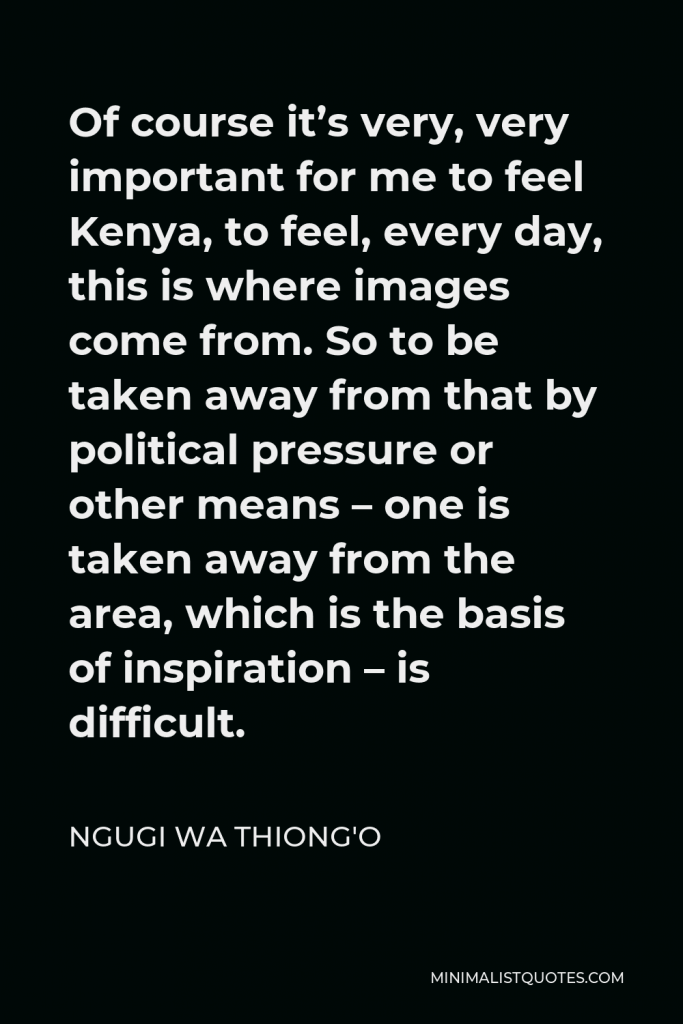

Of course it’s very, very important for me to feel Kenya, to feel, every day, this is where images come from. So to be taken away from that by political pressure or other means – one is taken away from the area, which is the basis of inspiration – is difficult.
NGUGI WA THIONG'O -





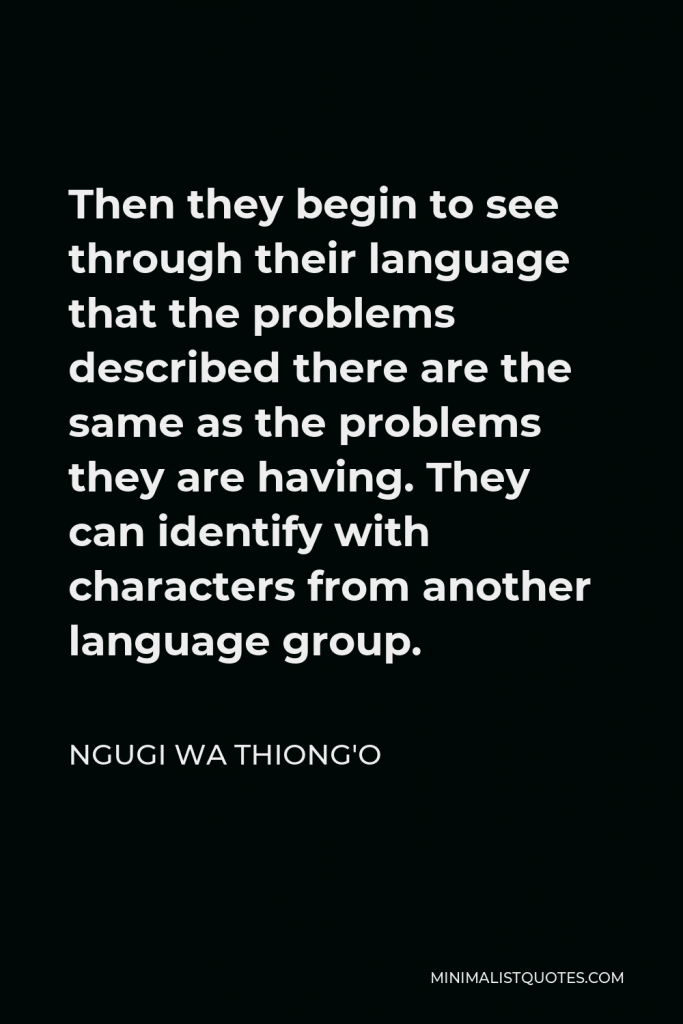

Then they begin to see through their language that the problems described there are the same as the problems they are having. They can identify with characters from another language group.
NGUGI WA THIONG'O -





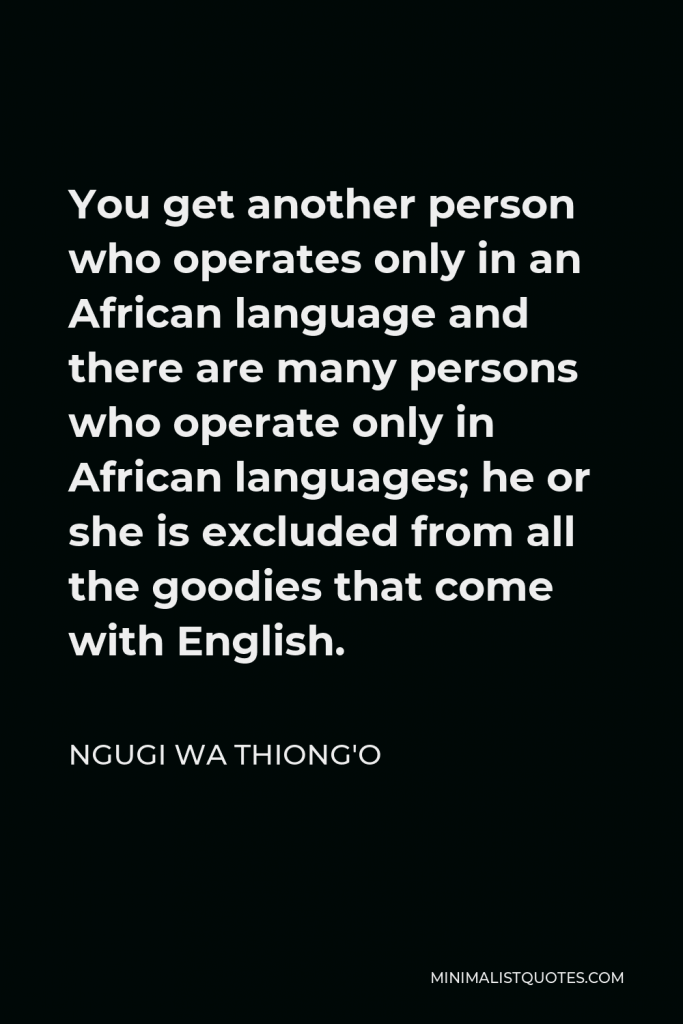

You get another person who operates only in an African language and there are many persons who operate only in African languages; he or she is excluded from all the goodies that come with English.
NGUGI WA THIONG'O -





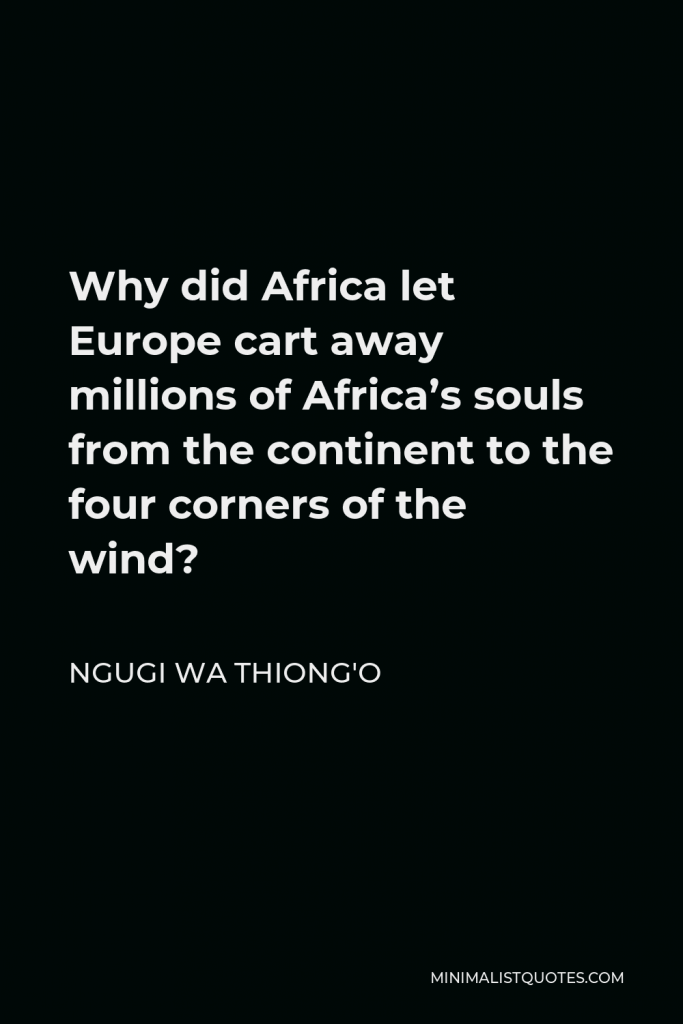

Why did Africa let Europe cart away millions of Africa’s souls from the continent to the four corners of the wind?
NGUGI WA THIONG'O -





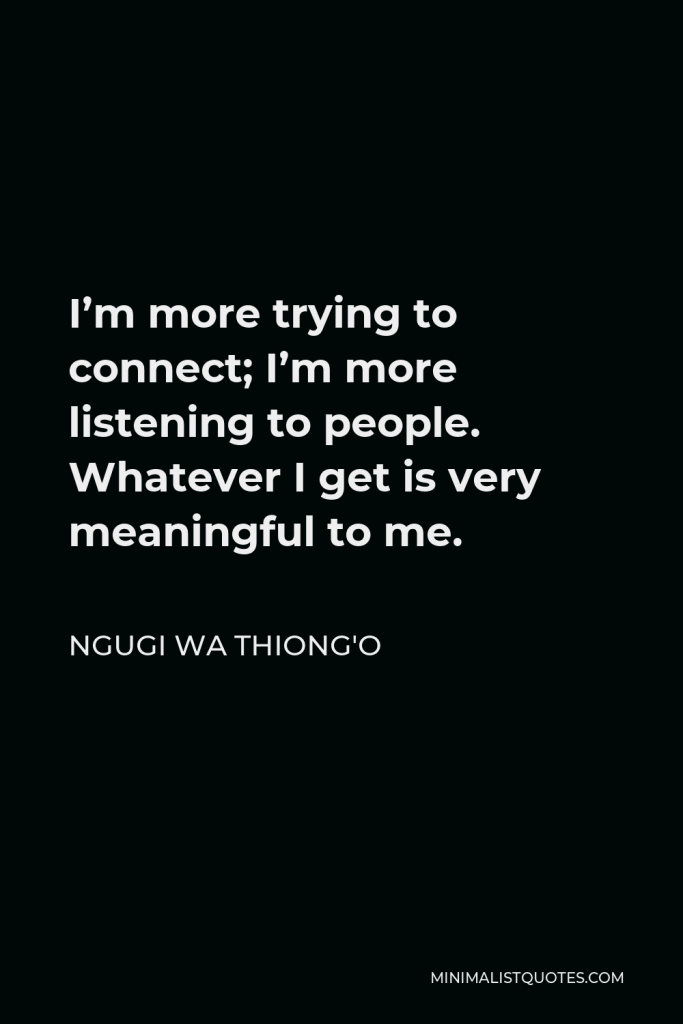

I’m more trying to connect; I’m more listening to people. Whatever I get is very meaningful to me.
NGUGI WA THIONG'O -





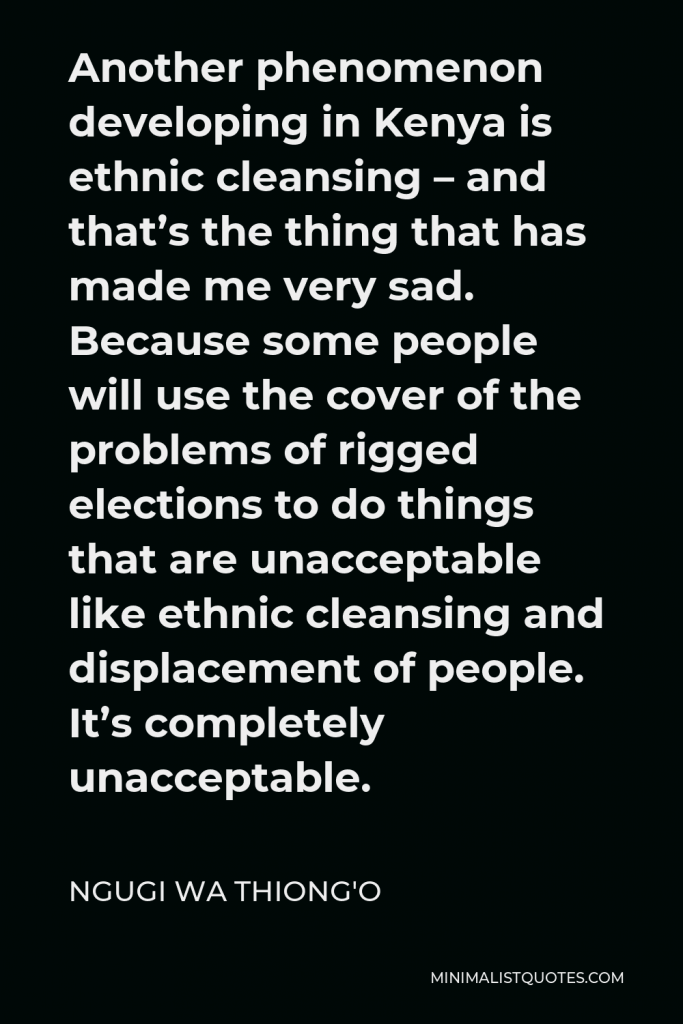

Another phenomenon developing in Kenya is ethnic cleansing – and that’s the thing that has made me very sad. Because some people will use the cover of the problems of rigged elections to do things that are unacceptable like ethnic cleansing and displacement of people. It’s completely unacceptable.
NGUGI WA THIONG'O -





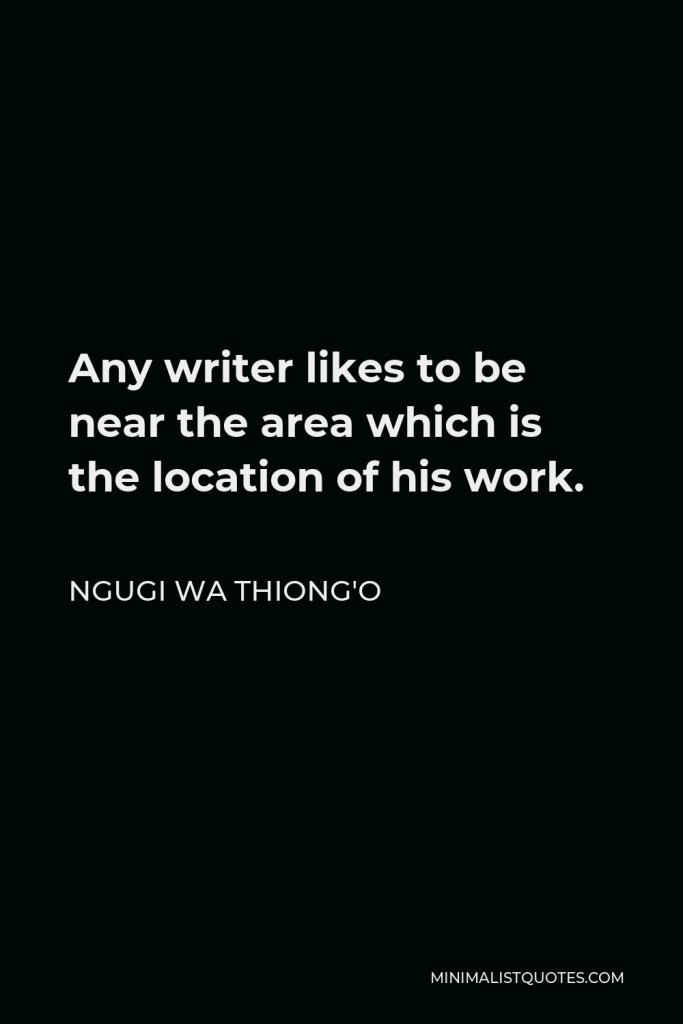

Any writer likes to be near the area which is the location of his work.
NGUGI WA THIONG'O -





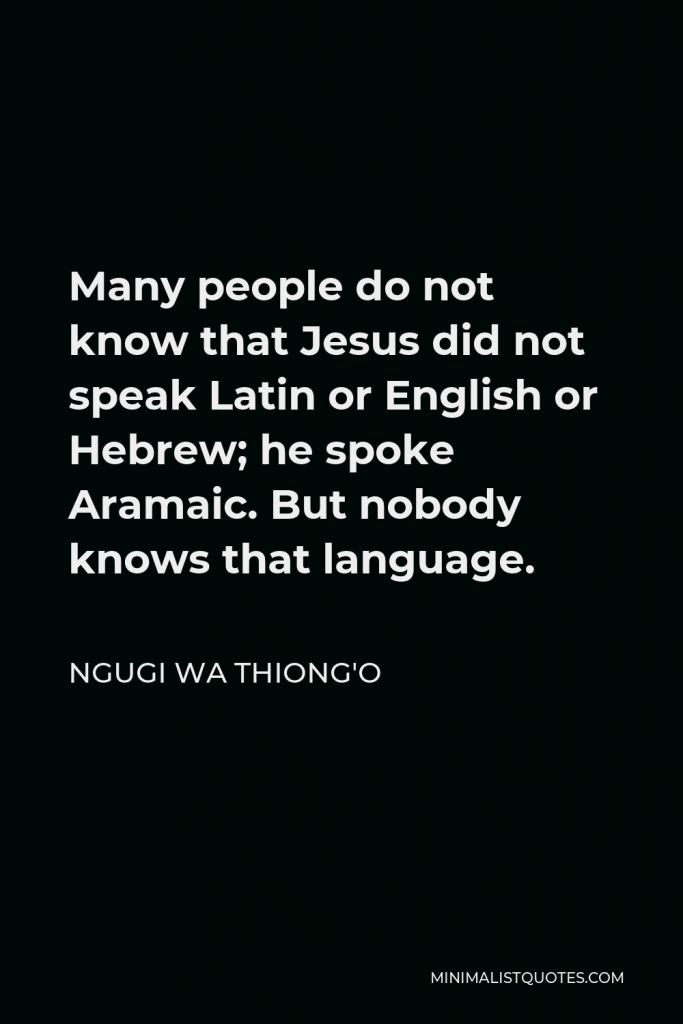

Many people do not know that Jesus did not speak Latin or English or Hebrew; he spoke Aramaic. But nobody knows that language.
NGUGI WA THIONG'O -





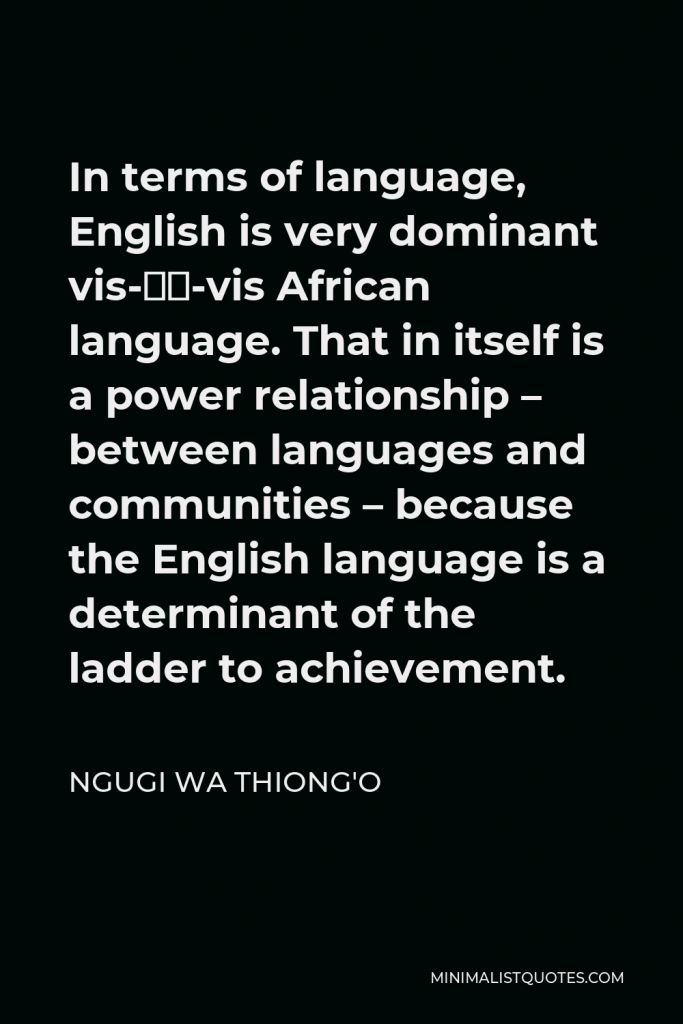

In terms of language, English is very dominant vis-Ã-vis African language. That in itself is a power relationship – between languages and communities – because the English language is a determinant of the ladder to achievement.
NGUGI WA THIONG'O -





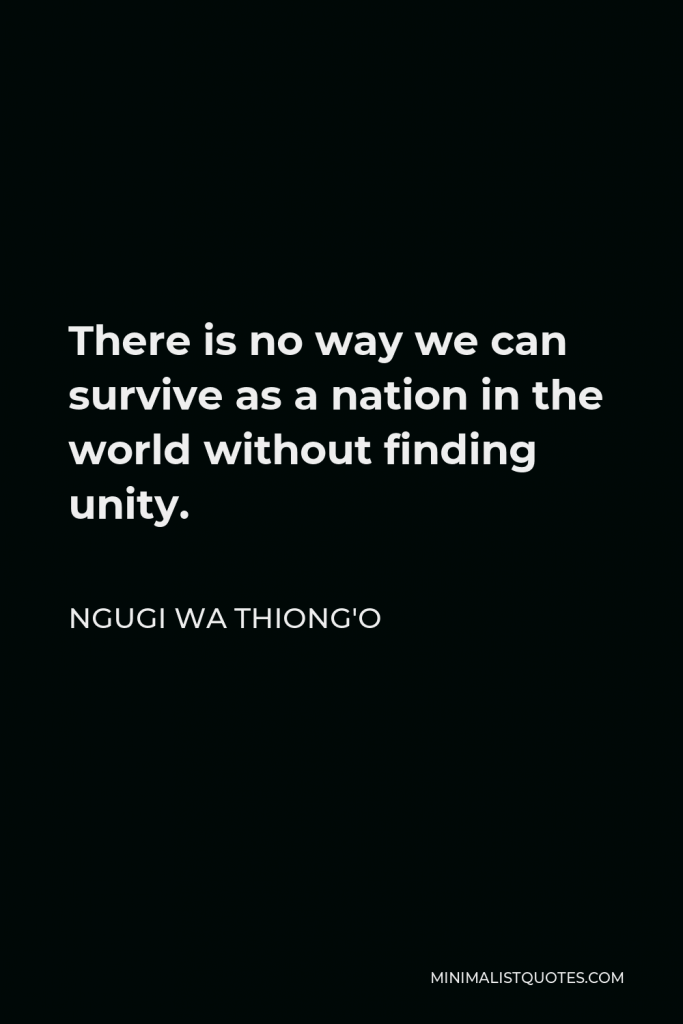

There is no way we can survive as a nation in the world without finding unity.
NGUGI WA THIONG'O -





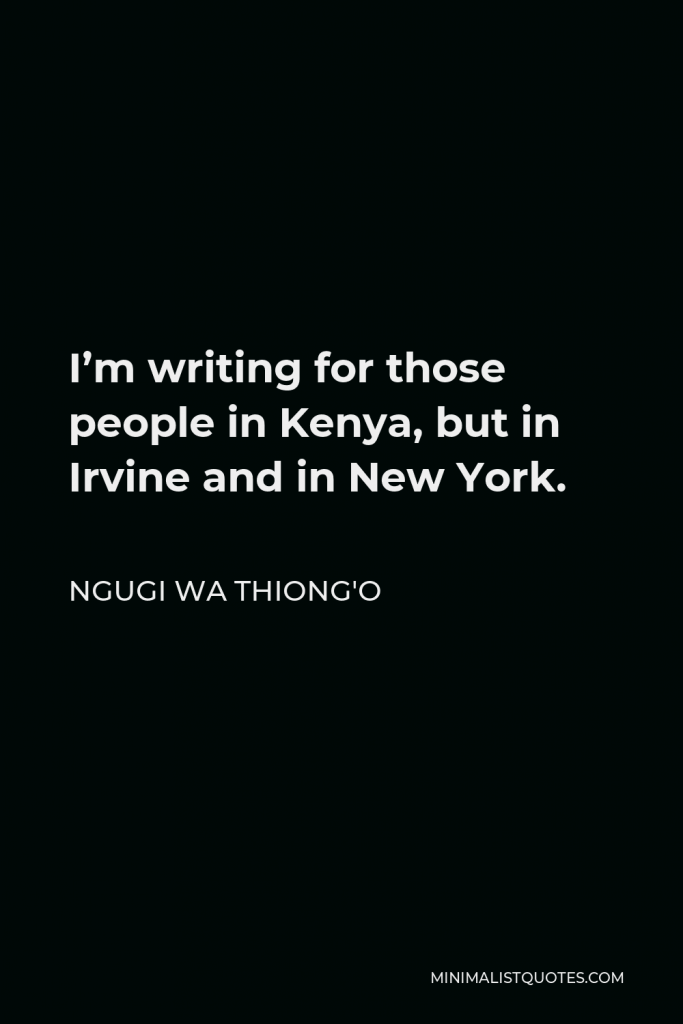

I’m writing for those people in Kenya, but in Irvine and in New York.
NGUGI WA THIONG'O
